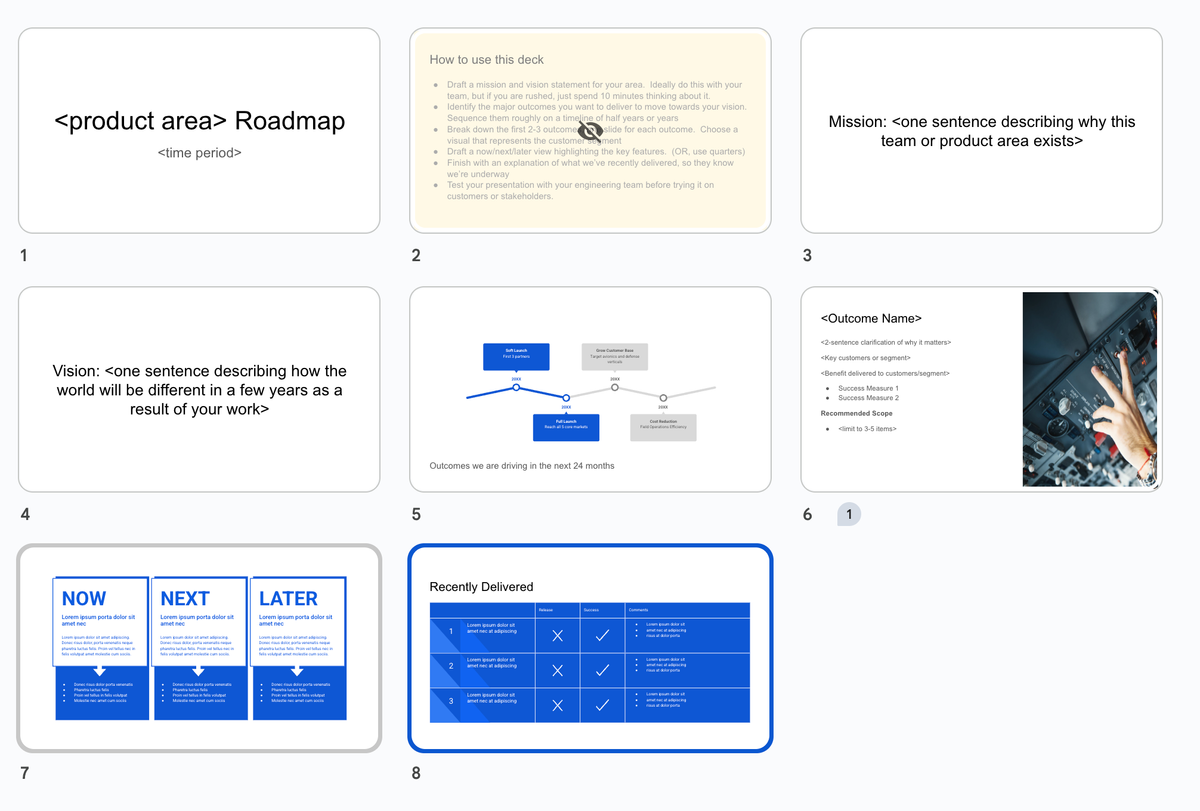Product Area Roadmap Template
The dreaded 'roadmap' - a word that could mean 'commitment', or 'forecast', or something else. For bigger product teams, a standardized approach can reduce the cognitive burden for stakeholders and make it easier to have frank discussions about the outcomes that matter.

We're back after a short break. After 14 weeks on the sofa with a broken leg, I'm finally walking again and was able to take a few days of vacation. It's amazing how spending a few days out of your routine can help create clarity!
Here we're talking about the dreaded 'roadmap' - a word that could mean 'commitment', or 'forecast', or something else. For bigger product teams, a standardized approach can reduce the cognitive burden for stakeholders and make it easier to have frank discussions about the outcomes that matter.
Context
You're deep in the feature battle. Sales is demanding more features. PMs are building features as fast as they can based on their own rationale, but trust is falling. The exec team is demanding solid timelines and a committed 24 month roadmap.
You have a number of semi-autonomous product managers with their own development teams. Each is approaching their work in their own way, with varying views of the future. Their stories are more about features and less about outcomes. Stakeholders are complaining that they're not getting the specific features they need. You want to shift the level of the conversation.
This style of roadmap is meant for B2B companies.
Discussion
Why are we doing this play? It's common for PMs and sales to get caught up in endless cycles arguing about feature priority. PMs usually have a bunch of features in mind that they want to build, and sales teams have a bunch of features they think would help close deals. In a growing company these two lists naturally diverge. We would hope for some clear strategy to bring these groups together, but perhaps you're not there yet.
I introduce this play when I get a sense that we have lost control of the narrative; that the shareholders and customers have strong opinions about should have ben done and how we were failing them. I want to shift the PMs from a reactive, defensive mode to actually owning and driving the narrative. The teams may be delivering a lot of high-value stuff that was moving the company in the right direction, but often that's not the story being told. Instead, it's an endless argument about features we hadn't started working on yet.
I want the PMs to articulate 3 things:
- Why their teams exist? What's the purpose?
- How will they change the future for the company and customers?
- What have they already delivered?